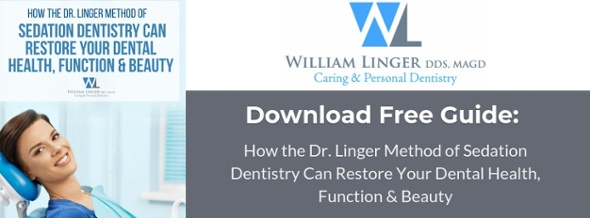
If you have anxiety about getting dental work done, rest assured that you are not alone. The vast majority of people experience some anxiety when going to the dentist. However, if your fear of the dentist prevents you from getting necessary work done, it may be time to look into sedation to help alleviate your fears and get your mouth in tip-top shape!
You may be a good candidate for sedation if you:
- want dental work completed in as little visits as possible,
- have had previous bad experiences with dentists,
- have anxiety about any amount of dental work,
- dislike dental office environments (smells, sounds, equipment, etc),
- have put off major and/or routine dental care due to fear of pain/discomfort.
What is Sedation Dentistry and how does it work?
Dental sedation is the practice of administering medication in various methods to patients to help them remain calm and relaxed during dental procedures. Sedation dentistry can also be called "sleepy dentistry," despite that fact that in some cases, patients are not entirely asleep. There are many types of ways sedation is administered and can be tailored differently for specific patients and procedures.
What types of sedation are available? How do I know which one will work for me?
- IV sedation, also known as general anesthesia. IV sedation is administered intravenously, giving your dentist and sedation team to continually adjust the level of sedation as needed. This method allows you to be completely or almost completely unconscious; patients will not remember their dental procedures and typically will not feel any pain or discomfort. If IV sedation is used, the individual will have to wait for the effects of the anesthesia to wear off before waking up and being coherent. IV sedation is generally used for procedures such as dental implants or other similarly long, intensive procedures.
- Oral sedation, sedation via oral medication. An hour or so before a patient's procedure, they will be given a pill similar to Valium in order to help them relax. Larger or smaller doses can be given based on individuals needs and preferences. Trained professionals will ensure the patient is not given medicine in excess, to avoid any harmful effects. People who opt for this type of sedation typically feel relaxed but groggy. Oral sedation is best used for cosmetic procedures such as dental crowns and procedures where the patient can stay still and handle hearing and seeing dental tools and sounds.
- Nitrous oxide laughing gas, a minimal sedation procedure administered through a mask placed over the patient's nose that delivers a combination of nitrous oxide and oxygen. Laughing gas works quickly and wears off quickly, making it one of the only types of sedation that you can drive yourself after having it administered.
Is sedation safe?
Sedation is not only effective, but the American Dental Association (ADA) deems sedation a safe and "integral part of dental practice." Both extensive training and ongoing education are required for dental offices who provide sedation services, ensuring the patient's utmost comfort and safety.
What is the cost?
Unless sedation is a necessary part of your procedure, typically this is an out-of-pocket cost. Cost varies widely depending on your location, method of choice, and length of time sedation is needed. Dentists who offer sedation have a comprehensive list of costs to help you figure out what will work best for your treatment and your budget.
If you're looking for a relaxed, non-judgmental environment to receive sedation dentistry care, look no further than William Linger, DDS. Serving the Charlotte area for over 20 years, we will provide you with caring and thorough treatment every step of the way.
From regular cleanings, cosmetic procedures, orthodontics, and beyond, we strive to provide our patients with a sense of satisfaction and security. Contact us today for all your dental care needs.



